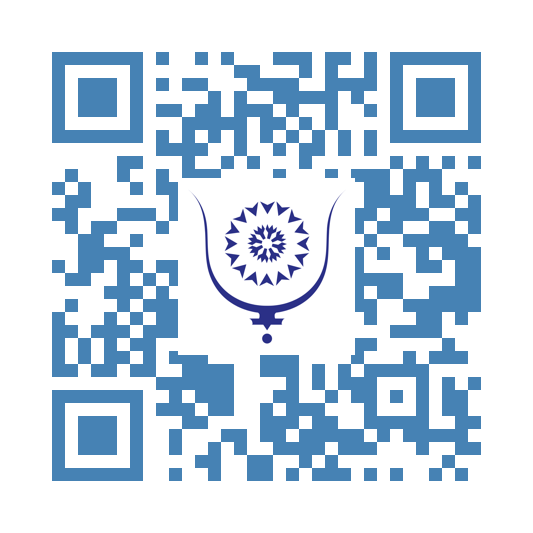Confiscated Freedoms: El Harrach and Tindouf, Two Faces of the Same Oppression...
74
It was while reading, moved, the heartbreaking letter from Algerian writer Boualem Sansal, addressed ultimately to everyone, that the idea for these few lines came to me. In this letter, written from El-Harrach prison, Sansal fiercely denounces the political repression and arbitrary incarceration imposed by the Algerian regime. This denunciation quickly made me think of the tragic situation of the population confined by the same regime for nearly fifty years in the Tindouf camps in Algeria.
My thoughts wandered randomly between the zealots who are there, like my high school friend Sadati, bearers of a chimera; those who stay there without even knowing why; those who have aged there; those buried there; and those born there. It is on these last that my thoughts particularly lingered.
The Tindouf camps shelter a few thousand young people born in exile, rather exposed where their parents ultimately did not choose to be, under extremely harsh conditions. For many, they are not even originally from the coveted lands nor bear any claim. They mainly depend on humanitarian aid, live in total precariousness, and see their well-being deteriorate, while those living just a few miles away enjoy abundance, comfort, and rights. They did not ask to be there and dream, like all their peers, of a better life, which truly exists on the other side.
Unlike a traditional prison with visible walls, like El Harrach, the Tindouf camps are an open-air prison, a constrained space where these youths are held without trial, without hope of freedom, nor any possibility of returning to their homeland—not by their own choice, but that of their jailers.
The common point between El Harrach and Tindouf: the sordid game of a military regime from another era.
This prolonged situation strikingly evokes the deprivation of freedom suffered by the detainees of Tindouf and the Algerian political prisoners Boualem Sansal describes in his letter. Both embody the same silenced voice, the same hope confiscated by the whims of officers who only carry the name, and by a military caporalism that, since 1962, continuously invents enemies, uses torture, repression, and deprivation of fundamental rights to maintain its grip on one of the richest countries in the world. This regime has stifled all democratic expression, from annulling election results to the spectacular assassination, broadcast live on television, of President Mohamed Boudiaf, sending a message of terror to the whole people. Recently, it brazenly repressed the peaceful Hirak protests and imprisoned their leaders. This regime no longer hesitates to mistreat even its most loyal servants. Randomly, prime ministers, ministers, high dignitaries, businessmen, generals, and journalists, even foreigners, find themselves subjected to quick trials where only the voice of their master resounds. They end up in the same prison, the famous El Harrach.
In his letter, Sansal expresses the physical and moral pain of a man imprisoned for having evoked history, dared to defend justice and dignity. His words carry the voice of all those whom the regime seeks to silence. This captive voice painfully echoes the fate of the youngsters held in Tindouf, also deprived of their most basic freedoms and condemned to endless waiting in a desert environment, hostile and hopeless.
Far from being a mere analogy, this comparison reveals a universal reality: whether behind bars or in the vast inhospitable desert, deprivation of freedom, forced exile, and broken hope remain the instruments of relentless political oppression. For these youths, the "march through an endless desert" is both a physical ordeal marked by extreme poverty, scorching heat, and isolation, and a metaphor for their quest for identity, dream of regaining their freedom, and joining the motherland.
Beyond denunciation, in his letter, Sansal makes a solemn appeal to France, asking it not to sacrifice its values on the altar of mercantile contingencies. The same appeal is addressed to the international community, on behalf of the young detainees of Tindouf, so that human rights principles are not sacrificed on the altar of geopolitical interests. This appeal is all the more relevant facing the situation of these youths, many of whom are not even originally from the Moroccan Sahara but are still imprisoned in a situation of exile and oblivion.
Thus, behind two different walls, a prison cell and undocumented, unrecognized refugee camps, lies the same tragedy: human beings reduced to waiting, to deprivation of liberty, and to a silent struggle not to disappear. This convergence highlights the urgency of strong humanitarian and political action to end these imprisonments so that freedom of thought, of living, and of deciding one’s own destiny is never again captured by an oppressive political machine, devised and implemented by an anachronistic military staff.
Thank you, sir, for awakening in me this fiber of compassion, even pity, for young people who deserve to live a better future.
I take here again Boualem Sansal’s words, which I address to the youth imprisoned in Tindouf:
*"Fear is a prison larger than the one where I find myself, and it is harder to break. But I know that one day, the wall will fall. Dictators always end up falling."*
Youth of Tindouf,
You will break the barbed wire, you will cross the checkpoints to return home by the strength of your character and the power of your will. Your country, that of your ancestors, the Kingdom of Morocco, awaits you; the future opens its arms to you; life will smile upon you for eternity, you will taste freedom there, the joy of living, of building yourself and of ensuring a happy future for your children. Your dreams will come true there and your ambitions will be realized. You will be the continuation of your ancestors in a diverse and powerful nation as it has been for centuries. You will help enrich humanity by your knowledge, your creativity, your genius.
You just have to dare.
Share:
Confiscated Freedoms: El Harrach and Tindouf, Two Faces of the Same Oppression...
copy:
https://bluwr.com/p/330307572



